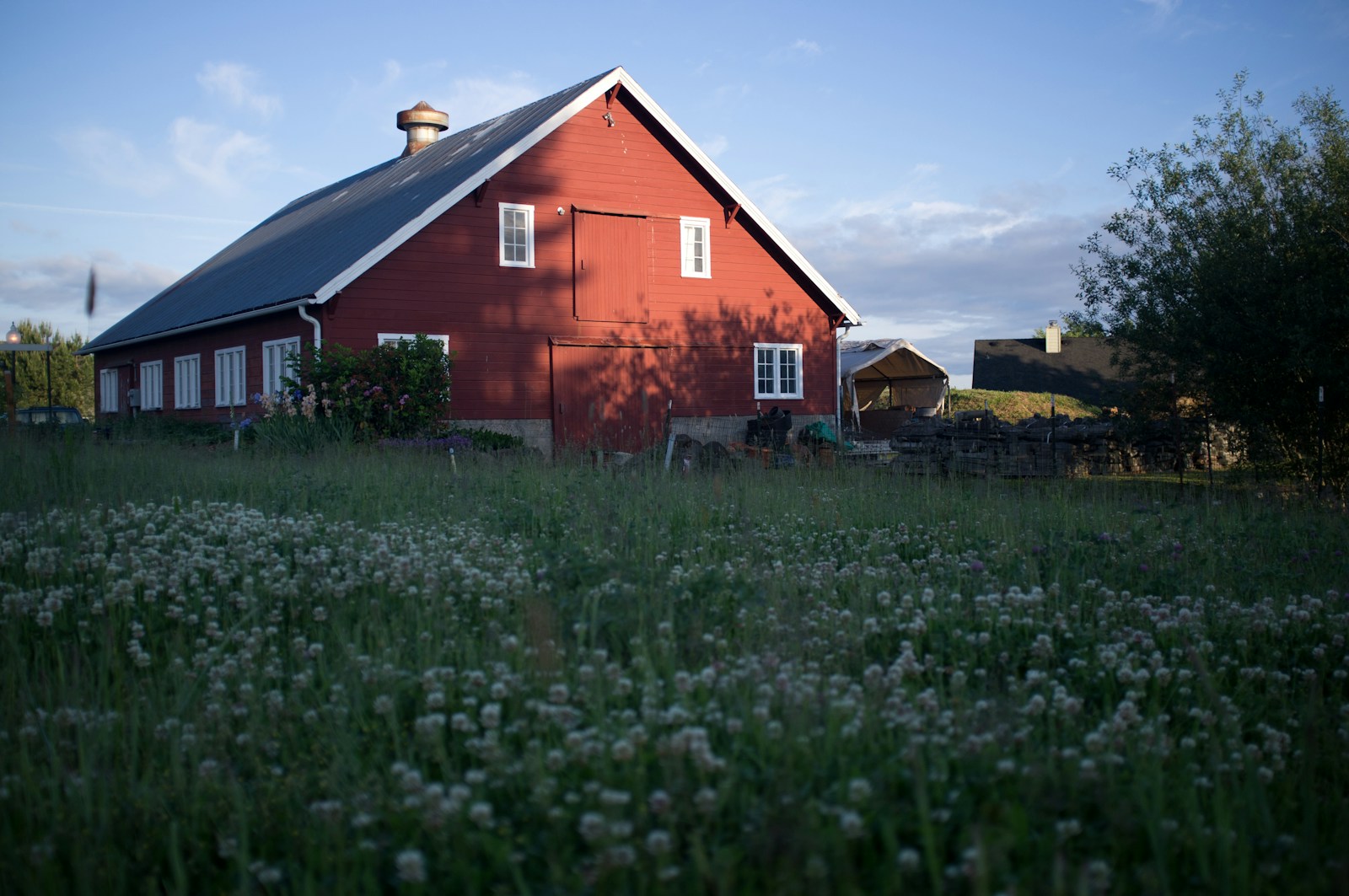
granero

barn
The Spanish word 'granero' translates to 'barn' in English. It's mainly used in the context of rural, agricultural settings where it serves as a storage place for grains, hay, and often to house livestock. This term is common in both Castilian Spanish, which is spoken in Spain, and Latin American Spanish.
Example sentences using: granero
El granero está pintado de rojo.

The barn is painted red.
It describes the color of a barn, or 'granero' in Spanish, indicating it is painted red.
El granero está al final del camino.

The barn is at the end of the road.
This sentence indicates the location of the barn, or 'granero', which is positioned at the end of the road.
El granero está lleno de heno.

The barn is full of hay.
This sentence implies that the barn, or 'granero' in Spanish, is full with hay, which is a common usage for barns in farming situations.
El tractor está estacionado junto al granero.

The tractor is parked next to the barn.
This phrase is describing the location of a tractor in relation to the barn, or 'granero' in Spanish.
La granja tiene un granero grande.

The farm has a big barn.
It indicates that the farm has a large barn. The word 'granero' here refers to the building on a farm where crops, equipment or animals are kept.
Los niños juegan en el granero.

The children play in the barn.
This implies that children are playing inside the barn, or 'granero' in Spanish.
El techo del granero necesita reparación.

The roof of the barn needs repair.
In this sentence, the 'roof of the barn' or 'el techo del granero', is stated to be in need of repair.
El granero viejo es una reliquia histórica.

The old barn is a historical relic.
This statement refers to an old barn, or 'granero viejo' as a historical artifact.
Encendieron una hoguera cerca del granero.

They lit a bonfire near the barn.
This sentence refers to the action of lighting a bonfire in proximity to the barn.
Los caballos están en el granero.

The horses are in the barn.
The sentence states that horses are located inside the barn, or 'granero' in Spanish.